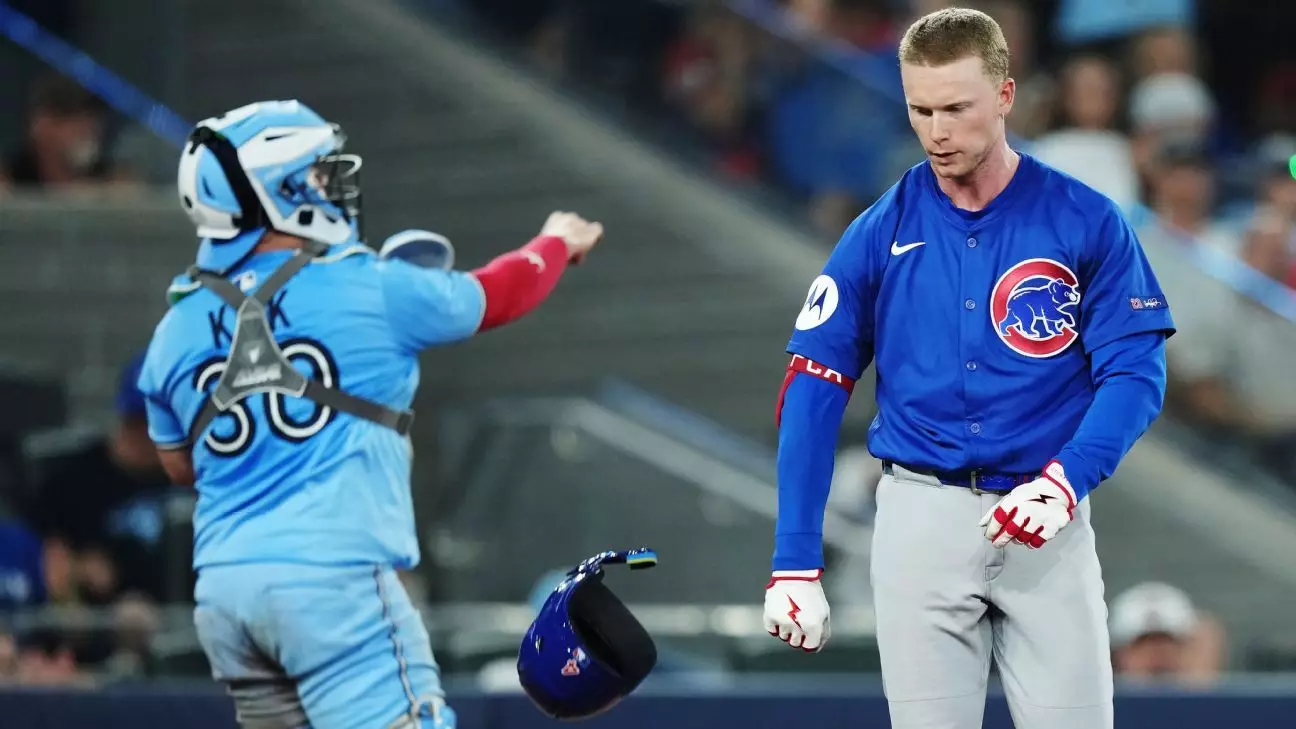The Chicago Cubs are currently navigating a period of adversity, facing a slump that has challenged their usual vigor and success. Despite recent setbacks, including losing three series in a row and struggling offensively, the team maintains a steadfast belief in their process. This attitude highlights an essential understanding in sports — that resilience and mental toughness often outweigh momentary failures. The Cubs’ coaching staff emphasizes the importance of trusting their methods over chasing immediate results, a philosophy that can serve as a blueprint for sustainable success.
This perspective isn’t merely about dismissing failure but recognizing that setbacks are part of the game’s fabric. Leaders like manager Craig Counsell encourage players to stay committed to their routines, focus on improving fundamentals, and avoid the trap of obsessing over short-term outcomes. Such an approach fosters a culture where continuous growth becomes more important than immediate victories, which can ultimately lead to a stronger, more unified team capable of overcoming future challenges with confidence.
Struggling Offense: The Root of the Problem
One of the most glaring issues for the Cubs is their diminished offensive productivity since the All-Star break. Once a formidable scoring machine, the team now finds itself at the bottom of the league in runs scored during this period. This downturn isn’t attributable to a single player or isolated event but is a collective issue encompassing many key positions in the batting lineup.
Kyle Tucker, a significant offensive contributor, has seen his numbers dip notably, especially since July 1. Despite a solid first half, he’s struggled to replicate that success in the second, compounded by a minor finger injury. Seiya Suzuki, who had been clutch in the first half with over 75 RBIs, has seen his run production drop sharply, illustrating how streaks of poor performance can snowball without a consistent rhythm. The same goes for Michael Busch and Ian Happ, whose batting averages highlight how widespread the difficulty is across the lineup.
This offensive dry spell not only hampers chances to secure wins but also places added pressure on individual players, creating a cycle of frustration and doubt. Yet, some players like Pete Crow-Armstrong have shown resilience, recognizing the importance of patience and self-belief. His acknowledgment that there’s still ample time left in the season demonstrates that maintaining a long-term perspective might be the key to revival.
Turning Frustration into Growth
The narrative of the Cubs’ struggles isn’t solely about numbers but about how the team perceives and responds to these challenges. Mental approach — focusing on what can be controlled rather than obsessing over outcomes — is crucial. Coach Counsell’s advice to focus on consistent effort and fundamentals is essential for individual growth and team cohesion.
The team recognizes that swings of bad luck and slumps are temporary, provided they stick to their principles. Their refusal to get swept in series throughout the season signals a resilience that can serve as an advantage going forward. The notable absence of series sweeps underscores their competitive spirit and ability to hold their ground against strong opponents.
Crucially, the Cubs’ current scenario offers a vital lesson: success in sports isn’t solely about talent but about perseverance. While the division leader, Milwaukee, is on a hot streak, and Cincinnati is playing well too, the Cubs remain within striking distance of the wild-card spots. Their history of overcoming adversity and sticking to their game plan will be tested in the coming weeks, and their capacity to remain mentally tough could dramatically alter their trajectory.
Strategic Path Towards Revival
Turning this period of struggle into a springboard for resurgence requires more than just patience; it demands strategic adjustments and internal belief. The Cubs must identify and reinforce their core strengths—solid defense, dominant pitching, and disciplined at-bats—while working tirelessly to overcome offensive inconsistencies.
Implementing minor tweaks in batting approaches, focusing on situational hitting, and encouraging a mindset of continuous improvement will be critical. The team’s internal resilience and leadership can transform frustration into fuel. For example, understanding that setbacks are natural and that progress often comes in waves can provide players with increased mental stamina.
Furthermore, fostering a culture where players hold each other accountable while supporting one another in tough times builds a stronger, more unified team. As history shows, teams that embrace adversity head-on with discipline and positivity tend to emerge stronger, often making late-season surges that surprise observers. The Cubs’ current challenge—though frustrating—is also an opportunity for growth, provided they can hold onto their belief and perseverance.
This phase in their season serves as a reminder that genuine greatness isn’t just built on consistent wins but also on resilience, adaptability, and the willingness to stick to one’s principles when it’s most difficult. With the right mindset and a focus on incremental improvements, the Chicago Cubs can turn their struggles into a story of comeback, illustrating that true champions aren’t defined by setbacks but by the unwavering resolve to overcome them.

